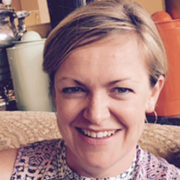Early 2024 conference

Milk • Nurture • Wisdom
March - June 2024
Milk • Nurture • Wisdom, our 24th online breastfeeding conference in English covered a wide range of topics to inform and guide your clinical practice and to inspire and challenge your thinking about breastfeeding, nutrition and human lactation.

The night-time care and feeding of baby humans
Helen Ball, PhD, MA, BSc - Read moreThe night-time care and feeding of baby humans
Helen Ball, PhD, MA, BSc
Helen Ball is Professor of Anthropology and Director of the Infancy & Sleep Centre (DISC) at Durham University, UK. She founded Basis, the Baby Sleep Information Source in 2012 as an outreach project of DISC, and was awarded the Queen’s Anniversary Prize for Further & Higher Education in 2018. Her research examines the sleep ecology of infants and their parents including attitudes and practices regarding infant sleep, behavioural and physiological interactions of infants and their parents during sleep, infant sleep development, and the discordance between cultural and biological sleep needs. She conducts research in hospitals, the community, and her lab, and she contributes to national and international policy and practice guidelines on infant care. She serves on the Scientific Committee for the Lullaby Trust, and Qualifications Board member for Unicef UK Baby Friendly Initiative, and Associate Editor for Sleep Health, journal of the US National Sleep Foundation (all voluntary positions).
The night-time care and feeding of baby humans
This presentation will cover the biological sleep development of babies and the interaction between feeding and sleeping. This will be contrasted with parents’ expectations of the night-time care and feeding of baby humans, The consequences of the resulting mismatch will be explored.
1.00 L (I,V,VII) CERP
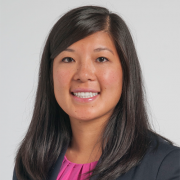
A history of breastfeeding through an equity and decolonization lens
Suet Kam Lam, MD, MPH, MS, IBCLC - Read moreA history of breastfeeding through an equity and decolonization lens
Suet Kam Lam, MD, MPH, MS, IBCLC
Dr Suet Kam Lam is the Assistant Medical Director of the Breastfeeding Medicine Clinic and Center at Cleveland Clinic Children’s in Cleveland, Ohio, USA. Dr Lam has mentored medical students and residents in breastfeeding research, given regional and national talks and published on various breastfeeding topics, and has obtained grants to fund community-based initiatives, as well as founding a virtual breastfeeding elective for medical students. She is passionate and dedicated to decreasing health disparities and preventive health.
A history of breastfeeding through an equity and decolonization lens
This presentation will explore health disparities in breastfeeding, taking a historical approach of how systemic policies affect various groups. Decolonization of breastfeeding and a mindful dedication to serving historically-disadvantaged groups can help clinicians bring more equity to breastfeeding.
1.00 L (VII) CERP

Underutilization of breastfeeding services: How to better support the Black dyad to promote exclusive breastfeeding
Natashia Conner, PhD, M.Phil, MS, IBCLC - Read moreUnderutilization of breastfeeding services: How to better support the Black dyad to promote exclusive breastfeeding
Natashia Conner, PhD, M.Phil, MS, IBCLC
For over a decade, Dr Natashia Conner has worked in a variety of professional industries, including local and state government, Community-Based Organizations (CBOs), Local Boards of Health (LBHs), Faith Based Organizations (FBOs), as well as public and private health agencies. Dr Conner began her career as an International Board-Certified Lactation Consultant (IBCLC) working inpatient at a level 3 trauma and academic medical center in 2013. For over a decade, Dr Conner has advocated for racial and health equity through health education and health promotion across the USA, including serving as a health equity content expert in human lactation and clinical instruction within medical facilities and academic institutions, Union Institute & University, Drexel University, and Walden University.
Dr Conner is a WaldenU graduate receiving a Master of Philosophy and a Doctorate of Philosophy in Health Education and Promotion with a concentration in behavioral health. As a Qualitative Researcher, her research interest extends from understanding stigmas related to stereotyping, prejudices, discrimination, behaviors, and attitudes that influence population health outcomes. Additionally, she holds a Master of Science in Health Education and Promotion with a concentration in Public Health degree from the University of Cincinnati College of Education, Criminal Justice, and Human Services, a Bachelor of Science degree in Maternal Child Health from Union Institute and University, and an Associate of Applied Business in Medical Administrative Technologies from Cincinnati State Technical & Community College.
Dr Conner’s core values of social justice for diverse populations, communities, and integrity have been the compass that has guided her throughout her career and strengthened her pursuit of promoting diversity, equity, inclusion, and access in health care, academia, our community, as well as the workforce.
Underutilization of breastfeeding services: How to better support the Black dyad to promote exclusive breastfeeding
In this presentation, we will discuss stigmas in healthcare include stereotypes, prejudices, and discriminatory attitudes based on perceived differences in race, class, gender, or sexual orientation. We will present factors contributing to the perceptions of discrimination in health care include low-quality care, involvement in decision making, time spent with the provider, and communication. The presentation will include: a review of the literature on the received prejudice and discrimination in healthcare, a discussion of the impact of perceived racism on breastfeeding in communities of color; a description of nonverbal communication behaviors that inadvertently contribute to the underutilization of lactation services.
1.00 L (V,VII) CERP
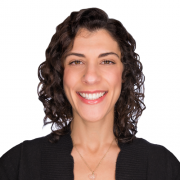
Perinatal mental health, neurodivergence, and the role of the lactation consultant
Heather Latiolais Eure, PhD, IBCLC, PMH-C - Read morePerinatal mental health, neurodivergence, and the role of the lactation consultant
Heather Latiolais Eure, PhD, IBCLC, PMH-C
Heather Latiolais Eure is an IBCLC and childbirth educator in Austin, Texas, USA. She works in the outpatient setting, perinatal unit, and NICU for a large group practice. Heather became involved in lactation support when she attended her first La Leche League meeting in 2012 during her pregnancy with her oldest child. She was accredited as a La Leche Leader in 2015. Shortly after learning she was pregnant with her third child, she decided to turn her passion for breastfeeding into a career and became an IBCLC in 2020. Before she entered the field of lactation, Heather completed a PhD in Comparative Literature with a certificate in Women’s and Gender Studies from The University of Texas and taught college-level French and writing courses.
Heather has her Perinatal Mental Health Certificate from Postpartum Support International and is a Certified Neurodiverse Lactation Specialist through the Neurodiverse Lactation Education Center. Her practice is evidence-based, neurodiversity-affirming, and LGBTQIA+ inclusive. She approaches her lactation work from a mental health lens, as all babies deserve happy, healthy parents.
Perinatal mental health, neurodivergence, and the role of the lactation consultant
Research has shown that perinatal mental health has a profound impact on breastfeeding outcomes, and that the breastfeeding journey has a tremendous effect on postpartum mental health. New studies have also recently demonstrated that neurodivergent mothers, such as ADHDers and autistic mothers, are at even higher risk for perinatal mental health complications than their neurotypical counterparts. This presentation focuses on how IBCLCs can compassionately support neurodivergent families and those with perinatal mental health conditions.
1.25 L (III,V,VII) CERP

Immediate skin to skin in the golden hourandLactation induction, review and case studies
Ana Lucia Ruiz Cabrera, MD, IBCLC, OBGYN - Read moreImmediate skin to skin in the golden hourandLactation induction, review and case studies
Ana Lucia Ruiz Cabrera, MD, IBCLC, OBGYN
Dr Ana Lucia Ruiz Cabrera is a mother of three, and works as a Colombian doctor of obstetrics and gynecology. She found breastfeeding medicine in 2010, and since then has fallen in love with it. Ana has always found holistic approaches amazingly beautiful when working with families, so has dedicated her work to fulfill women expectations during labour and breastfeeding. She decided to become an IBCLC and has been one since 2015, She works in one of Latin America’s top hospitals developing strategies for better birth and breastfeeding experiences.
Immediate skin to skin in the golden hour
The best way to welcome your child in to the world is skin to skin, it has multiple benefits for mothers and babies, but it still not the rule in a lot of hospitals around the world. We will talk about the implementation of immediate skin to skin and breastfeeding post vaginal births and c-section at Fundacion Santa Fe de Bogotá, Colombia, recognized as one of the tops hospitals in Latin America.
1.00 L (I,VI,VII) CERP
Lactation induction, review and case studies
Lactation induction nowadays is more frequent than ever before, every day more women adopt a baby or use surrogate alternatives It is not well known by the health professionals that induction of lactation is something that can be offered and is not so difficult to achieve. This presentation will review the literature and share case studies.
1.00 L (II III,VI,VII) CERP
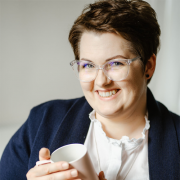
The domino effect: How drug related problems affect breastfeedingand Treating seasonal infections during lactation
Karolina Morze, MPharm - Read moreThe domino effect: How drug related problems affect breastfeedingand Treating seasonal infections during lactation
Karolina Morze, MPharm
Karolina Morze is a pharmacist and specializes in pharmacotherapy in lactation. She works as a consulting pharmacist in a private practice in Poland. In her clinical practice she works with lactating individuals with various health issues, helping mothers with both common problems, chronic or rare diseases to reconcile the therapy and breastfeeding with as little intervention as possible, respecting mothers’ wishes and needs.
She conducts training for IBCLCs, midwives, doctors, pharmacists and other medical professionals as well as non-medical lactation supporters in the field of medication and breastfeeding, attempting to explain complex pharmacological problems in an easy to understand way. She conducts research on the Drug Related Problems and outcomes of maternal medication on the breastfed children.
She is a member of the Polish Society of Clinical Pharmacy and Polish Society of Pharmacovigilance. She is also an author of several books and publications.
The domino effect: How drug related problems affect breastfeeding
When it comes to medication and breastfeeding, not only we have to keep in mind the safety and effectivness of pharmacotherapy, but at the same time be aware of the patient’s needs and lactation goals. Breastfeeding parents may face many difficulties, that result in Drug Related Problems. Follow Karolina through the case of her patient with mastitis, learn about Drug Related Problems and see what significance they may have in practice.
1.00 L (IV,VII) CERP
Treating seasonal infections during lactation
From strychnine to pseudoephedrine. Join Karolina on a journey through a brief history of treating seasonal infections, hear about 20th century methods and see the range of options we have now. Do breastfeeding parents need to follow any restrictions? During this lecture, you will learn what medications are most often used in treating seasonal infections and what is their safety during lactation.
1.50 L (III,IV) CERP
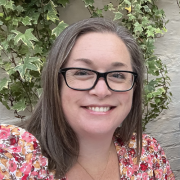
Maternity protection to enable breastfeeding
Catherine Pereira-Kotze, RD(SA), MNutr, PhD - Read moreMaternity protection to enable breastfeeding
Catherine Pereira-Kotze, RD(SA), MNutr, PhD
Dr Catherine Pereira-Kotze has been working in the field of public health nutrition since 2005. Her work experience includes the programme management of, training, and research in maternal, infant, and young child nutrition. She is passionate about the protection, promotion, and support of breastfeeding and striving to make a difference to the lives of the most vulnerable groups. Her skills include public health nutrition research and policy advocacy, communications, education, training and mentorship. She has worked in low-, middle- and high-income country settings. Catherine spent most of her life in Cape Town (South Africa), and in 2020, relocated to the UK. She is currently working as a part-time Senior Nutritionist at First Steps Nutrition Trust and a consultant to Alive and Thrive East Asia Pacific.
Maternity protection to enable breastfeeding
This presentation will provide an overview of comprehensive maternity protection including global guidance and latest research on how maternity protection enables breastfeeding. It will also provide examples of groups that are vulnerable to not accessing maternity protection (for example, non-standard or informal workers). Catherine will share some of the research and examples of work she has done on this topic.
1.00 E (V,VII) CERP

Supporting the reproductive work of breastfeeding
Karleen Gribble, PhD, BRurSc(Hons), CertIV Breastfeeding Education - Read moreSupporting the reproductive work of breastfeeding
Karleen Gribble, PhD, BRurSc(Hons), CertIV Breastfeeding Education
Dr Karleen Gribble is an Adjunct Associate Professor in the School of Nursing and Midwifery at Western Sydney University, Australia. Her interests include infant and young child feeding in emergencies, regulation of the marketing of breastmilk substitutes, child rights and sexed and gendered language. Karleen passionately advocates for recognition of the importance of mothers to their infants and works to create environments that support breastfeeding and the mother-infant relationship, particularly in situations of adversity. She is an Australian Breastfeeding Association Breastfeeding Educator and Counsellor.
Supporting the reproductive work of breastfeeding
This presentation will argue that breastfeeding is reproductive work that should not be reduced and cannot be redistributed to others. It will describe how breastfeeding should be isolated as ‘sexed’ care work that should be supported with action taken to avoid undermining.
1.00 E (V,VII) CERP

Breastfeeding challenges in paediatrics
Lyndsey Hookway, PhD, RNC, SCPHN, IBCLC - Read moreBreastfeeding challenges in paediatrics
Lyndsey Hookway, PhD, RNC, SCPHN, IBCLC
Dr Lyndsey Hookway is an experienced paediatric nurse, children’s public health nurse, IBCLC, researcher, responsive sleep/parenting advocate, and the author of six books. She has worked with children and families for more than 20 years within in-patient paediatrics, paediatric ambulatory care, NICU, and the community.
Lyndsey is a researcher at Swansea University, UK, exploring the needs and challenges of medically complex breastfed infants and children. In 2019 she founded the Breastfeeding the Brave project to raise awareness of the unique lactation needs of sick children in the paediatric setting. Lyndsey is the co-founder and clinical director of the Holistic Sleep Coaching program and Thought Rebellion. She is a respected international speaker and also provides regular training, advocacy and consultancy to both NHS and private organisations.
Breastfeeding challenges in paediatrics
Childhood illness is associated with additional difficulties and lower breastfeeding rates. There is a paucity of research within this sub-population limiting our understanding of the barriers for families and professionals. An explanatory mixed-methods study aimed to understand the challenges of breastfed children in the paediatric setting.
Both paediatric professionals and parents identified a lack of skilled support particularly with more seriously unwell children. This research provides insight into what measures are perceived as supportive by mothers while also identifying barriers and areas for improvement. Skill deficits identified in the studies suggest that bespoke paediatric breastfeeding training based on identified clinical challenges is justified.
2.25 L (III,V,VII) CERP
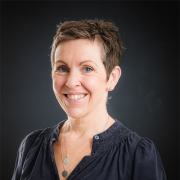
The good, the bad & the unethical: Being an IBCLC in the age of social media
Caoimhe Whelan, BEng, IBCLC, MSc(research) - Read moreThe good, the bad & the unethical: Being an IBCLC in the age of social media
Caoimhe Whelan, BEng, IBCLC, MSc(research)
Caoimhe Whelan is an IBCLC working in private practice in Dublin, Ireland. She is interested in maternal mental health, feminism, qualitative research, low milk production and epistemology (as it pertains to breastfeeding and lactation).
The good, the bad & the unethical: Being an IBCLC in the age of social media
This presentation will explore the realities and challenges of being an IBCLC in an era where people are increasingly turning to social media platforms for information. It will look at how parents’ feeding choices and mental health are influenced by content they see on social media and ethical and professional considerations for IBCLCs who post on social media. The presentation will also consider the addictive nature of social media platforms and the predatory marketing tactics of non WHO-code complaint companies.
1.25 E (VII) CERP
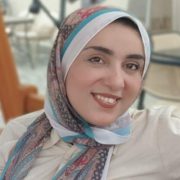
The impact of human milk on functional GI disorder
Nada Atef, MBChB, IBCLC - Read moreThe impact of human milk on functional GI disorder
Nada Atef, MBChB, IBCLC
Dr Nada Atef is a specialist in pediatrics and prepared her doctorate degree in pediatrics (Ain Shams University, Cairo, Egypt) with published research in pediatrics gastroenterology.
In 2015 she obtained her master degree from Ain Shams University with special interest in pediatric gastroenterology and endoscopy. She has now trained for almost 8 years in Ain Shams University the gastroenterology unit.
To add more knowledge and for her personal need as a mother of two daughters she became interested in lactation.
Since 2010 she has been working in the Mansheyet El Bakri Hospital, Cairo, Egypt for the Ministry of Health as a neonatalology specialist.
The impact of human milk on functional GI disorder
Pain-related functional gastrointestinal disorders (FGIDs) are characterized by visceral hypersensitivity (VHS) associated with alterations in the microbiota-gut-brain axis. Since human milk oligosaccharides (HMOs) modulate microbiota, gut and brain, we investigated whether HMOs impact VHS, and explored the role of gut microbiota.
Milk microbiota likely is one of the first things to colonize the infant gut, promote growth of beneficial microbiota, and in turn impact the immune system in infants.
The infant diet also impacts the microbiome of the gastrointestinal tract and immune system in both animal models and clinical studies.
1.00 L (II,III) CERP

Supporting breastfeeding multiples
Kathryn Stagg, IBCLC - Read moreSupporting breastfeeding multiples
Kathryn Stagg, IBCLC
Kathryn Stagg is mother to four boys, twins and two subsequent singletons. She trained as a breastfeeding peer supporter and volunteered in the groups for years in and around Harrow, NW London, UK. Kathryn caught the breastfeeding support bug and decided to further her knowledge training as a Breastfeeding Counsellor with the Association of Breastfeeding Mothers and then qualifying as an IBCLC 6 years ago. Kathryn started Breastfeeding Twins and Triplets Facebook group almost 9 years ago and it now has over 10,000 members. It became a UK charity in 2020. Kathryn is passionate about delivering high quality breastfeeding support to as many twin and triplet families as possible, creating resources and educating health care professionals and breastfeeding supporters. She runs a small private practice and continues to teach music part time, her original career path. Kathryn is the author of
Supporting breastfeeding multiples
This presentation will help delegatesparticipants understand the challenges of multiple pregnancy and birth, the impact of premature and late preterm/early term birth on establishing breastfeeding multiples, how to navigate the challenges of breastfeeding multiples and how to support families effectively.
1.00 L (I,V,VI,VII) CERP
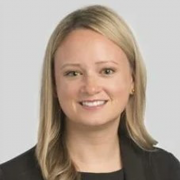
Growing a breastfeeding medicine clinic at a large academic institution
Heidi Szugye, DO, NABBLM-C, IBCLC, FAAP - Read moreGrowing a breastfeeding medicine clinic at a large academic institution
Heidi Szugye, DO, NABBLM-C, IBCLC, FAAP
Dr Heidi Szugye is triple-board certified in Breastfeeding and Lactation Medicine, General Pediatrics, and Pediatric Hospital Medicine and is also an International Board-Certified Lactation Consultant (IBCLC).
With over a decade of clinical experience, Dr Szugye has worked as a newborn and pediatric hospitalist across Cleveland Clinic Children’s tertiary care and birthing hospitals and currently specializes in Breastfeeding and Lactation Medicine. She is the founder and medical director for Cleveland Clinic Children’s first Breastfeeding Medicine Clinic. She actively participates in research and quality improvement initiatives focused on breastfeeding, contributing to the collective knowledge in the field. She has been featured in various media and news outlets, sharing her insights and wisdom on breastfeeding and its crucial role in infant and maternal health. Dr Szugye is a dedicated educator, precepting and teaching trainees of all levels and serves as a physician advisor at Cleveland Clinic’s Lerner College of Medicine.
Outside of her professional commitments, Dr Szugye enjoys reading, running, and spending time with her husband and three children.
Growing a breastfeeding medicine clinic at a large academic institution
This presentation will explain how to assess for opportunities and a need for Breastfeeding Medicine support at your institution, identify the institutional stakeholders necessary to create a Breastfeeding Medicine Clinic and describe potential challenges and barriers in setting up an academic Breastfeeding Medicine practice.
1.00 L (VII) CERP
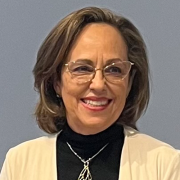
Impact of the COVID-19 pandemic on perinatal care practices and maternal and infant outcomes
Maria-Teresa Hernandez-Aguilar, MD, PhD, MPH, IBCLC - Read moreImpact of the COVID-19 pandemic on perinatal care practices and maternal and infant outcomes
Maria-Teresa Hernandez-Aguilar, MD, PhD, MPH, IBCLC
Maite Hernández-Aguilar is a Medical Doctor and pediatrician, she holds a Master’s degree in Public Health and Nutrition from the University of Berkeley (California) and a PhD from the Faculty of Medicine of the University of Valencia. In 1991, she was awarded a Fulbright scholarship, she has been an IBCLC since 2014, she is a member of the ABM, ILCA, ELACTA, European-ABM, AELAMA (Spanish Association of Breastfeeding) and the AEP (Spanish Association of Pediatrics). In 2021 she became Fellow of the ABM.
She has worked as a pediatrician, always in the public healthcare sector, in hospitals and primary care and directed a nutritional and health survey in Orihuela, Alicante, Spain. In November 2013, she founded the first Clinical Breastfeeding Unit in Spain at University Hospital Dr. Peset in Valencia. She received a National Quality Award Recognition for this initiative in 2015 from the Spanish Ministry of Health.
She has authored and co-authored numerous scientific articles and book chapters. She has participated in numerous national and international conferences and webinars. She is qualified as breastfeeding counselling trainer and assessor for BHFI, she has mentored medicine students and residents of pediatrics, and family medicine specializing midwives and family medicine residents and has provided breastfeeding training, in person and online to many healthcare professionals pre and in-service. She chaired the Breastfeeding Committee of the Spanish Paediatric Association from 2009 to 2013. She is a permanent member of the scientific committee of the Spanish IHAN Breastfeeding Congresses (held every two years). She regularly collaborates with breastfeeding mothers’ support groups in Spain. She is Fellow of the ABM and she served in its board of directors from 2021 to 2023.
She was the national BFHI coordinator in Spain from 2013 to 2020 and she is currently its delegate for international affairs. Since 2021 she chairs the BFHI Network, a global NGO that works for the global extension of the implementation of the BFHI.
She works presently as a breastfeeding medicine specialist and coordinates Dr Peset Breastfeeding clinical Unit She breastfed her two children for several years.
Impact of the COVID-19 pandemic on perinatal care practices and maternal and infant outcomes
The COVID pandemic impacted on the health and well being of mothers and infants, directly or through a change in practices. Many countries and facilities abandoned good quality of perinatal care practices and restricted mothers acompaniment during birth, separated mothers and infants and hindered skin to skin contact and early breastfeeding. The situation and its consequences will be analysed through the lens of published literature and international surveys.
1.00 L (I,VII) CERP

Flange fitting basics for the modern lactation professional
Jeanette Mesite Frem, MHS, IBCLC, RLC, CCE - Read moreFlange fitting basics for the modern lactation professional
Jeanette Mesite Frem, MHS, IBCLC, RLC, CCE
Jeanette Mesite Frem is an experienced childbirth educator, lactation consultant and retired birth doula. She started her career working with families in the early 90s, while serving as a Peace Corps Volunteer in a village in Côte d’Ivoire, West Africa. She loved that work so much she went on to receive a public health masters degree from Johns Hopkins School of Public Health, focusing her studies on nutrition for maternal and child health. Her two children were breastfed for more than 2 years each and Jeanette has experience pumping at work for both children and has supported more than a thousand families with feeding and pumping over the last 20 years.
Jeanette provides prenatal childbirth and breastfeeding classes at her office in Northborough, Massachusetts, USA as well as providing virtual and office feeding consultations. She enjoys providing continuing education offerings for IBCLCs and other perinatal health professionals about pumping, flange fitting, and feeding gear, and mentoring those who work with families.
Flange fitting basics for the modern lactation professional
Pumping is not only recommended for parents whose babies cannot latch/nurse in the days/weeks after birth, but is also commonplace in parts of the world where parents are going back to work. Finding pumping comfortable, while effectively removing milk in an efficient manner is important because it encourages parents to continue pumping to yield milk for their baby. We have known for many decades that getting the best flange fit is vital for comfort, milk yield and efficiency. However, the traditional way of flange fitting has come into question with the success of “smaller” flanges that are now on the market. Learn what this modern approach to flange fitting is, how you can integrate it into your lactation practice, and how it can positively impact the families with whom you work.
1.00 L (VI,VII) CERP

Plus bonus presentation
Nipple variations and implications during lactation
Diana West, BA, IBCLC
- Read more
Plus bonus presentation
Nipple variations and implications during lactation
Diana West, BA, IBCLC
Diana West is an international board certified lactation consultant (IBCLC) in New Jersey and retired La Leche League Leader. She has published many books, including The Breastfeeding Mother’s Guide to Making More Milk (1st and 2nd editions), Sweet Sleep: Nighttime and Naptime Strategies for the Breastfeeding Family, the 8th edition of The Womanly Art of Breastfeeding, Breastfeeding after Breast and Nipple Procedures, Defining Your Own Success: Breastfeeding after Breast Reduction Surgery, and ILCA’s Clinician’s Breastfeeding Triage Tool.
Nipple variations and implications during lactation
This presentation of vivid (and often graphic!) photos of nipples contributed by colleagues around the world explores normal and potentially problematic anatomical nipple variations, nipple surgeries, conditions, and their effects on milk production, milk removal, and direct breastfeeding.
1.25 L (I,III) CERP

